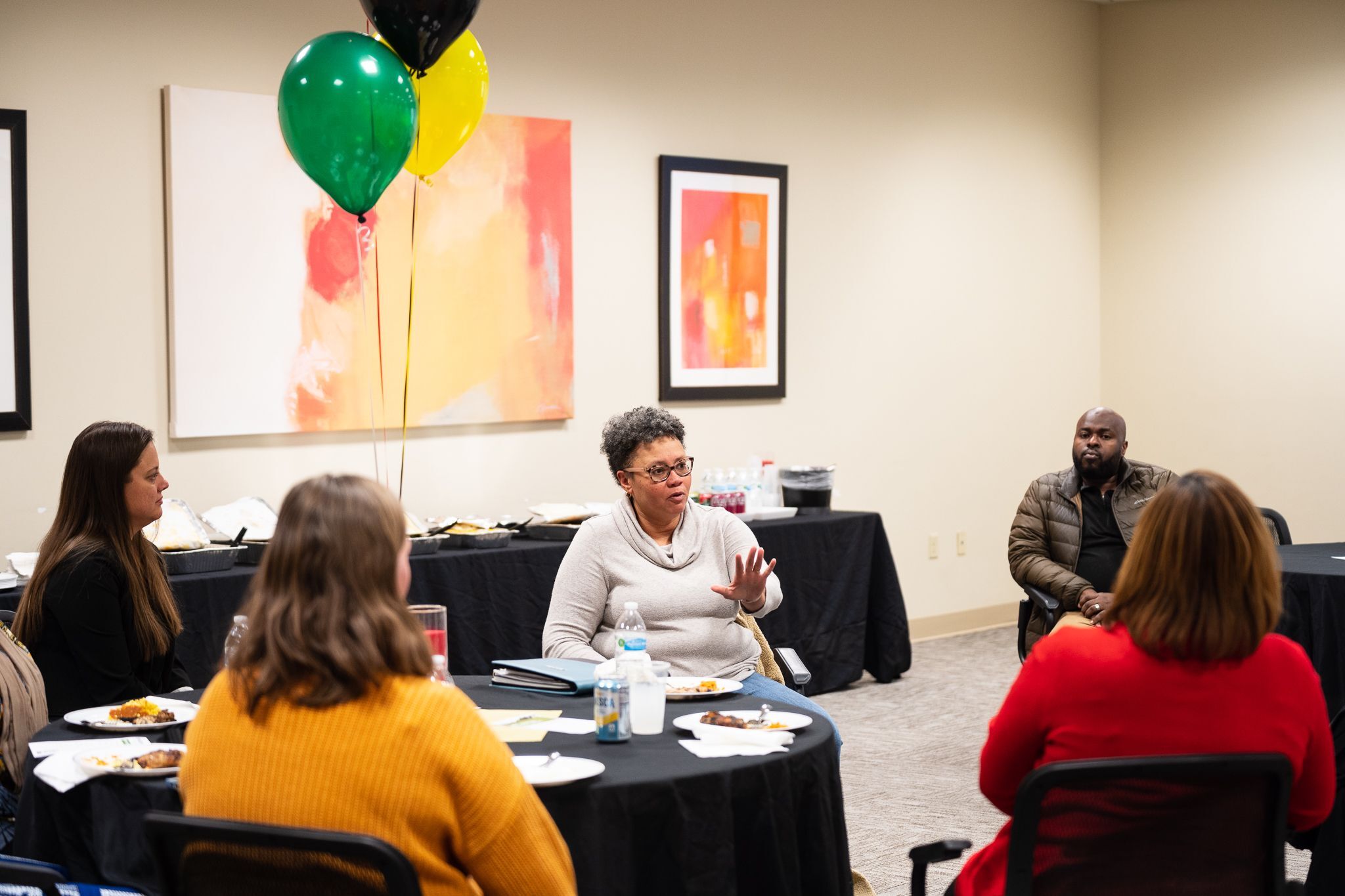
The child welfare system is responsible for ensuring the safety, permanency, and well-being of children who have been abused or neglected. Unfortunately, Black/African American and Hispanic/Latino children are disproportionately represented within this system. Of the 459 children served by CASA for Douglas County during 2021-2022, 41% of the children identified as Black/African American. These children need advocates who can understand their experiences and work to ensure that they receive the best possible care and support. In an effort to address this issue, CASA for Douglas County hosted a recruiting event and invited key organizations within the Black/African American communities to encourage more diverse volunteers to join the organization.
What is Disproportionality?
Disproportionality refers to the unequal representation of certain groups within the child welfare system. In Nebraska, Black/African American children are disproportionately represented. The reasons for this are complex but often related to systemic racism, poverty, and lack of access to resources. Children from these communities are more likely to be removed from their homes and placed in foster care, they are more likely to experience longer stays in foster care and less likely to be reunified with their families.
What is CASAs role in the child welfare system?
CASA (Court Appointed Special Advocates) volunteers play a critical role in the child welfare system. These volunteers are appointed by judges to advocate for the best interests of children who are in foster care. They work to amplify the voice of children, ensuring that children are safe and that their needs are being met. Diverse CASA volunteers are particularly important for Black/African American and Hispanic/Latino children in the child welfare system. These volunteers can provide cultural competence, empathy, and understanding of the unique challenges faced by these children and their families. They can also serve as positive role models and advocate for change within the system.
CASA is committed to creating an environment that reflects the children we serve. CASA has hosted two Representation Matters recruiting events. These events provide an opportunity for CASA for Douglas County to connect with individuals who are passionate about advocating for children in their communities. Additionally, these events allow CASA for Douglas County to build relationships with community members, which can lead to increased trust and understanding. By building trust with Black and Brown communities, CASA for Douglas County can work to address the unique challenges faced by these communities and ensure that their voices are heard within the system.
“It is important to value family, culture and the community of the children impacted by the child welfare system,” says Kimberly Barnes, Executive Director at CASA. “Therefore, CASA for Douglas County is intentional about prioritizing the recruitment of volunteers to reflect the children we serve.”
Disproportionality in the child welfare system is a significant issue that must be addressed. CASA volunteers play a critical role in ensuring that children in foster care receive the support and care they need, and diverse volunteers are particularly important for Black and Brown children as they face unique challenges that require culturally competent advocates. By working to address disproportionality and encouraging diverse volunteerism, we can build a competent volunteer base that children and families can relate to and provide better support and advocacy for Black and Brown children in the child welfare system.
To find out more information about how to become a CASA Volunteer, click here or reach out to Martha Alcantara-Sanchez, Community Outreach Specialist, at malcantara@casaomaha.org. If you or an organization want to request more information on community partnerships, contact Jordan Fletcher, Development Director, at jfletcher@casaomaha.org.
Additional Reads:
https://time.com/6168354/child-welfare-system-dorothy-roberts/
https://www.childwelfare.gov/pubPDFs/racial_disproportionality.pdf

